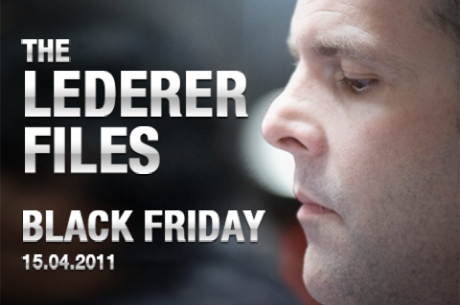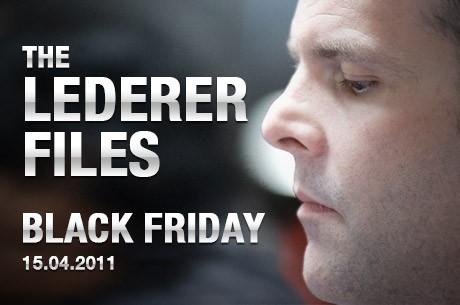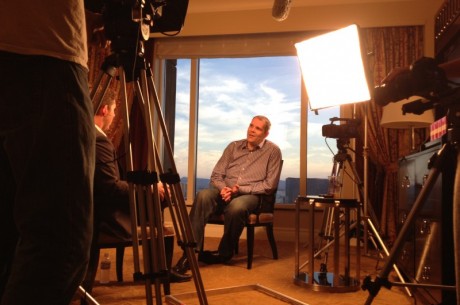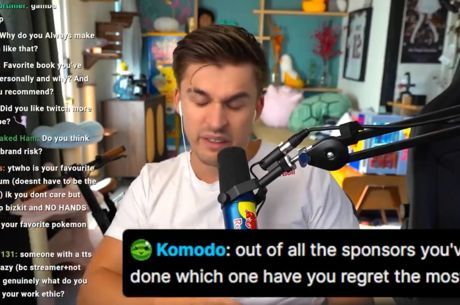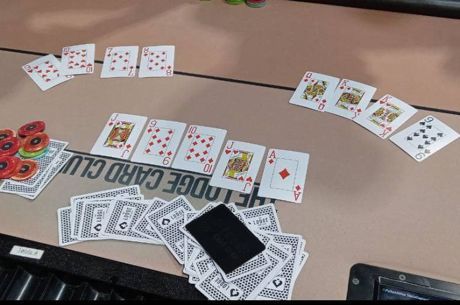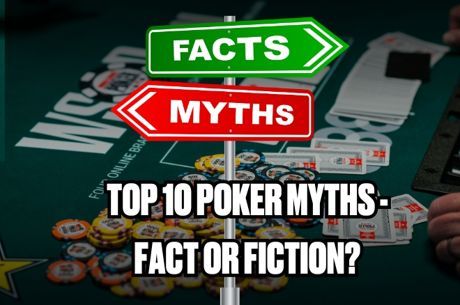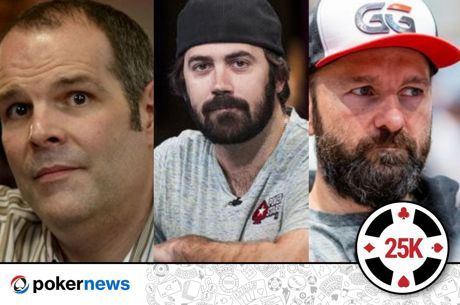Recapping the Lederer Files �� Part 2
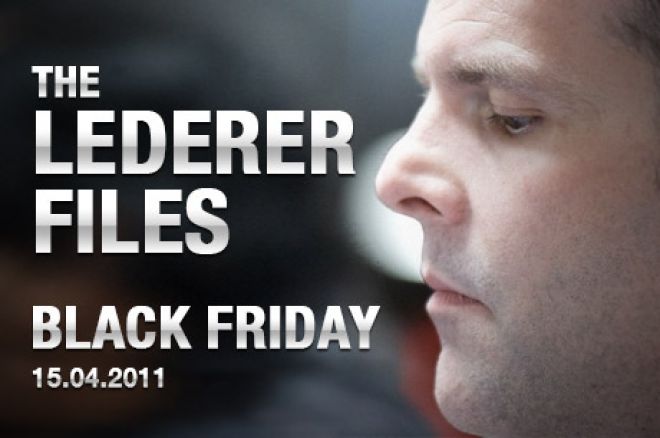
PokerNews recently sat down with Howard Lederer for a lengthy video interview on all things Full Tilt Poker and Black Friday �� which has become known as The Lederer Files. We recently recapped the first four parts of the nearly seven-hour interview, and now we offer a recap of the remaining interview.
Before we do that, we would like to reiterate Lederer��s opening comments.
��I just think now is the time for the poker public to get some answers to questions that they deserve to have answered. For them to get some facts that have obviously not been shared with them over the last 15 months. There were, as we��ll discuss going forward, there were very good reasons why the company and the principles were not discussing these issues in public during the 15 months, but now that the deal has been completed, I think this is the time.��
��I would like to say one thing though, sort of before we get into the interview, and that is I am one person in what was a very complicated situation, so I don��t have all the answers, and I don��t have all the facts,�� Lederer went on to say. ��I��m going to try my best here to offer the facts that I know, that I feel comfortable offering in terms of I don��t want to be speculating about anything. So I��m going to offer some opinions, certainly I have opinions about things that happened and I��m going to be offering facts.��
To watch each segment of the released footage, follow these links:
- In Part 5 of this exclusive interview series with PokerNews, Lederer goes into detail about Phil Ivey's $150 million lawsuit against the company filed on June 1, 2011. According to Lederer, Ivey was only looking out for himself and didn't fulfill his moral obligation as an owner to help return customer funds. Lederer called the lawsuit "horrific" and "devastating to the company."
- Lederer reveals some shocking information about the outstanding loans of some of the owners of Full Tilt Poker in Part 6 of The Lederer Files. Lederer discloses a mistake made by the company's finance department in which Erick Lindgren received a double-credited $2 million loan. When asked to return the extra $2 million to the company, Lindgren became unreachable. Lederer says the company never received that money.
- In Part 7 of The Lederer Files, Lederer discusses the closing of the deal between PokerStars, the Department of Justice, and Full Tilt Poker. The deal was finalized on July 31, 2012, but Lederer explains how it got "very dicey" toward the end.
You can view the interview right here on PokerNews, but we understand not everyone may have neither the time nor opportunity to watch; as such, we have put together a comprehensive recap of the major points as well as various quotes from Lederer.
Please note, there are parts in this recap that were not released in the seven-part video series.
Our recap picks up on the subject of deals with Full Tilt Poker, including one that was made by Jack Binion and called for a 40 percent dilution for $150 million. That deal, though, which most of the owners did not like, never really got off the ground. ��I kinda didn't care about who would end up doing the deal,�� Lederer said. ��I was completely agnostic. We had a number of groups in Dublin, many of them conducted due diligence. We had a wide variety of offers over the course of the first few months, and when I say offers, they��re term sheets, we never actually had a contract that we could have signed that would have gotten our customers paid. That never happened.��
Instead, Lederer explained that when dealing with potential investors, the company informed them that $250 million would be needed to ��plug the entire hole,�� though most businessmen were reluctant to think along those lines. ��They wanted to invest the minimum to solve the problem,�� Lederer explained.
On June 1, 2011, Phil Ivey filed a lawsuit against Full Tilt Poker for $150 million dollars, a development that was devastating to the company and stemmed from a May conversation in which Ivey expressed interest in being released from his ��golden handcuffs,�� something, according to Lederer, he had brought up a year earlier.
��As long as the company was valuable enough to somebody in terms of potential future earnings, those potential future earnings would bind that celebrity poker endorser to the company �� potentially forever,�� Lederer said regarding the strategic investors obligations to the company (AKA ��golden handcuffs��), though they could be absolved of such obligations if they gave up their stake in the company. Lederer and company would not let Ivey leave because it would hurt FTP at that point in time, and Ivey took issue with this.
��Phil Ivey had the right to sue our company, I just think it was wrong. Extremely wrong for our customers,�� Lederer said while questioning what Ivey had hoped to achieve with the lawsuit. ��I have my opinion on that lawsuit, I can��t possibly know what actual effect it had on the whole arch of the 15-month story. I don��t know.��
Lederer then stated that according to Doyle Brunson, Ivey��s lawsuit soured Binion on the idea of a deal, though there were still other potential opportunities on the table. For instance, a Wall Street hedge fund deal that would see a high-interest loan of $100 million at 18 percent interest, $50 million in personal guarantees from owners, a 15 percent stake, and money that would be escrowed solely and specifically for payment of U.S. players.
According to that group��s model, Full Tilt Poker was functioning well and could get by with $100 million. FTP wanted more, but Lederer emphasized the group specialized in leveraging the minimum amount of cash needed to get things back on track. After the Ivey lawsuit, things changed, and they barely heard from the Wall Street group again.
��Definitely Phil had his allies amongst the owners, not a lot,�� Lederer explained about the shareholders�� reaction toward Ivey. ��The ownership was very upset with Phil, as I feel they should have been. I don��t believe that Phil��s actions were any indication about owner discontent, that was already there. Phil��s lawsuit was its own thing, it was about Phil, and it just sort of dropped like a nuclear bomb on June 1st.��
With the stalemate of April to early June slowly eating away at the company's overall health, and the Binion and Wall Street deals unlikely, the ownership was more likely to take a much more major dilution, which finally allowed all shareholders to see how necessary it was to get a deal done.
It was at this point that Andy Bloch, who was an owner but not a member of the board, flew to Dublin, observed the board for approximately two weeks, and then flew back to the U.S. satisfied with the progress and effort being put forth by the company �� which prompted other owners to criticize his opponents, almost as if he had contracted the ��Dublin flu,�� as Lederer put it.
��Phil Gordon wrote an email to somebody that I saw where he included a sentence that said, ��You should think twice about believing�� Ray, Chris, Rafe, me and Andy as the people who caused the problem.�� There was a lot of finger pointing going on,�� Lederer explained.
On June 9, 2011, the owners did what was always in their power to do and changed the course of the company by introducing a member written consent, a document drawn up by attorneys in accordance with the operating agreement that called for the removal of the old board and replacing it with a new one that included Ivey, Gordon and Bloch. They needed a majority and had about 52 to 53 percent of the ownership who signed what would become known as ��Transition 2.0.��
��I just accepted it,�� Lederer said. ��I think our customers deserved more fight from me. I knew it was a big mistake. First of all, Phil Ivey��s going to be on the board. He just sued the company on June 1st, that didn��t make any sense to me, that was a really bad idea. I thought Phil Gordon had demonstrated that he was sort of out for blood, and that wasn��t going to get our customers paid, and Andy Bloch was apparently a late addition to the board, just sort of as a compromise, so without Andy being on the board they wouldn��t have gotten over 50 percent.��
The outgoing board felt it was very important that the new board learned everything possible about the company and to figure out the kinds of pressures that are about to be on them. There was very little resistance when the outgoing board killed the proposed $20,000 per month proposed by member written consent. It was important for new board to be committed to getting these customers paid.
During a transitional 10-day period, all board meetings were joint board meetings with the old board having authority, but the new board would be on every call. In addition, every decision needed to be approved by two out of the three new board members. During this time the company looked at the ramifications of Bitar being removed as CEO, and it became apparent that no one was prepared to take over his responsibilities, nor did anyone have his knowledge of the situation.
As such, the new board of Ivey, Gordon, and Block were effectively not going to take their seats, and FTP was prepared to become a ��ghost ship�� with no ownership. FTP counsel managed to get signatures from the membership to effectively kill the proposed new board, allowing the original board to remain in power with the ability to act on behalf of the company, ensuring no progress would be lost toward a deal. Meanwhile it was agreed that if the company could raise $30 million in cash from the membership in an escrow account and preparations were made to take over Bitar��s duties, then Transition 2.0 would be reinitiated and the new board would take over at that time.
It was also around this time that the idea of member loans being repaid came about. ��As of the end of May, the only member who had paid back what he owed the company was me. I owed the company $700,000, and I paid it in late May,�� Lederer said, adding that he had gotten called out by Gus Hansen for subtracting his player balance from what was owed. ��He��s a sharp cookie, that Gus, and basically what he said was ��Any of you that are thinking of settling your accounts with the company, you need to send in the gross amount you owe and forget about your player balance, that��s the right thing to do��' so a couple days later I sent in another $300,000.��
At that point Gordon sent in the $11,000 he owed, but no other members who had notable loans with the company (Ivey, Bitar, Erick Lindgren, John Juanda, David Oppenheim) repaid. Lederer also noted that Ferguson gave back $14 million, $9 million of which was owed to him from the company, and $5 million of which had recently been distributed.
��There��s one loan in particular that I hope [PokerStars, who now owns the assets,] collects, and this wasn��t actually a loan from the company, it was sort of a mistake,�� Lederer said. ��In early April, I think it was April 6th or 7th, Chris Ferguson loaned Erick Lindgren $2 million. Erick needed that money on the site to give to another player, so it was transferred to him on the site from Chris, and then I think that player withdrew the money and that player was paid. I have no idea how it happened, but I guess it��s sort of indicative of some of the sort of foibles of the finance department, but somehow the message of ��Give Lindgren $2 million,�� someone took that to mean give it to him on the site, but someone else took that to mean wire $2 million directly to Erick Lindgren��s bank account. So he borrowed $2 million, but he actually received $4 million.��
The owed loans stressed the situation of the company, as did the United States Department of Justice labeling FTP a Ponzi scheme. ��I take great offense to the characterization that it was a Ponzi scheme,�� Lederer emphatically stated before stating that many of the 23 shareholders adopted a hands-off approach to resolving the company��s situation, including Rafe Furst, who resigned from the board in July.
Lederer then turned his attention to the deal with Groupe Bernard Tapie and addressed the difficulties making such a deal happen, which included GBT negotiating with the DOJ. ��Tapie was way better than bankruptcy for our customers, and we knew that. So we had very little leverage,�� Lederer said. Even so, there were lingering concerns that GBT, a distress asset buyer, would not make players whole and would essentially ��jerk them around.�� Ultimately, the DOJ and GBT could not agree on terms and the deal fell through �� enter PokerStars.
Rumors had persisted that PokerStars was interested in acquiring FTP, and sure enough, the two parties began discussions in early 2012. ��I think they were very excited about the idea. They saw the opportunity, and I think they loved the idea of being able to rescue our customers, because PokerStars really cares about the poker community. They have handled themselves with nothing but the utmost professionalism,�� Lederer said.
Once a deal had been struck, the company reached out to any shareholder with more than 1 percent to obtain consent despite the fact that it was not required for a forfeiture of assets. ��Certainly Phil Gordon, Perry Friedman, Sheinberg group had no interest in signing it. They ignored us, it's just sort of spite, I guess,�� Lederer said. ��John Juanda also decided not to sign it.��
Despite not getting all shareholders to sign the consent, the deal moved forward due in no small part to some of FTP��s employees, one in particular Lederer spoke about:
��There were a couple of employees that I talked to that really helped. One employee that I would actually point out in particular, a guy name Ifram Linquist. If you look at the stipulation, his name��s in there. He was the other director besides Ray Bitar of Pocket Kings. This is an example of the little things that were actually really big things. He��s been an employee of the company since the L.A. days, very good employee, a really good guy, and I knew him well, Ray knew him well. Slowly but surely over the course of the 15 months Pocket Kings lost its directors, and I believe it was in the February time frame Pocket Kings was down to one director �� Ray. Irish law states that no company can be incorporated in Ireland unless there is an EU resident listed as one of the directors, and essentially if you don��t remedy the situation within a week or two weeks, the company is immediately forced into dissolution. So we needed to find a director who would step up, and it turned out Ifram had attained EU residency, and he really cared about the company and he really cared about our customers, and he stepped up.
"I know it sounds like a simple thing, he became the director of a company, he became a director of Pocket Kings when it owed 3 million people $350 million. He wasn��t responsible for it and could never be held legally responsible for it, he had nothing to do with any of the problems of the company, but he was going to be named on all those lawsuits [by stepping up]�� He knew he was putting himself in harm��s way for the sake of our company and the sake of our customers.��
It was a long and arduous affair, and despite some close calls, the deal with PokerStars ultimately closed. "As an owner of Full Tilt Poker, I take full responsible for what happened,�� Lederer said. ��What happened wasn't right and it caused a lot of pain, a lot of suffering, and in some cases just inconvenience for 3 million customers. For that I am truly sorry.��
He went on to conclude: "I look very much forward to the reopening of the site under PokerStars' leadership. I am incredibly thankful for their incredible professionalism in the way they handled the situation. I'm going to be rooting for the company every day. I can't tell you how happy I am that the deal happened, and that, hopefully, our customers are all going to be made whole."
Get all the latest PokerNews updates on your social media outlets. Follow us on Twitter and like us on Facebook today!
In this Series
- 1 The Lederer Files: An Introduction
- 2 The Lederer Files: The Beginning of Full Tilt Poker
- 3 The Lederer Files: The UIGEA, Segregated Accounts, and Retirement
- 4 The Lederer Files: The Backlog and Black Friday
- 5 The Lederer Files: Black Friday Aftermath, the Search for a Solution
- 6 The Lederer Files: The Phil Ivey Lawsuit, Transition 2.0
- 7 The Lederer Files: Outstanding Member Loans, Groupe Bernard Tapie Complications
- 8 The Lederer Files: PokerStars Saves the Day, Apology to Full Tilt Poker's Customers
- 9 The Lederer Files: The Process and Opinions
- 10 Recapping The Lederer Files �� Part 1
- 11 Recapping the Lederer Files �� Part 2

